Related Research Articles

In World War II, the Polish armed forces were the fourth largest Allied forces in Europe, after those of the Soviet Union, United States, and Britain.[a] Poles made substantial contributions to the Allied effort throughout the war, fighting on land, sea, and in the air.
The history of Poland from 1939 to 1945 encompasses primarily the period from the invasion of Poland by Nazi Germany and the Soviet Union to the end of World War II. Following the German–Soviet non-aggression pact, Poland was invaded by Nazi Germany on 1 September 1939 and by the Soviet Union on 17 September. The campaigns ended in early October with Germany and the Soviet Union dividing and annexing the whole of Poland. After the Axis attack on the Soviet Union in the summer of 1941, the entirety of Poland was occupied by Germany, which proceeded to advance its racial and genocidal policies across Poland.

The Polish Workers' Party was a communist party in Poland from 1942 to 1948. It was founded as a reconstitution of the Communist Party of Poland (KPP) and merged with the Polish Socialist Party (PPS) in 1948 to form the Polish United Workers' Party (PZPR). From the end of World War II the PPR led Poland, with the Soviet Union exercising moderate influence. During the PPR years, the centers of opposition activity were largely diminished, and a socialist system was established in the country.
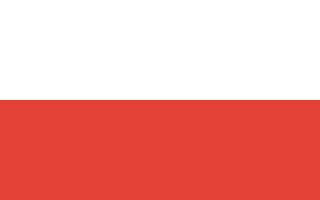
The Polish government-in-exile, officially known as the Government of the Republic of Poland in exile, was the government in exile of Poland formed in the aftermath of the Invasion of Poland of September 1939, and the subsequent occupation of Poland by Germany, the Soviet Union, and the Slovak Republic, which brought to an end the Second Polish Republic.

Field Marshal Garnet Joseph Wolseley, 1st Viscount Wolseley,, was an Irish officer in the British Army. He became one of the most influential and admired British generals after a series of successes in Canada, West Africa and Egypt, followed by a central role in modernizing the British Army in promoting efficiency.

Oskar Ryszard Lange was a Polish economist and diplomat. He is best known for advocating the use of market pricing tools in socialist systems and providing a model of market socialism. He responded to the economic calculation problem proposed by Ludwig von Mises and Friedrich Hayek by claiming that managers in a centrally-planned economy would be able to monitor supply and demand through increases and declines in inventories of goods, and advocated the nationalization of major industries. During his stay in the United States, Lange was an academic teacher and researcher in mathematical economics. Later in socialist Poland, he was a member of the Central Committee of the Polish United Workers' Party.

Wanda Wasilewska, also known by her Russian name Vanda Lvovna Vasilevskaya, was a Polish and Soviet novelist and journalist and a left-wing political activist.
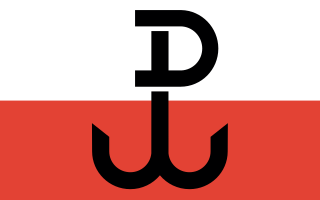
The Polish Underground State[a] was a single political and military entity formed by the union of resistance organizations in occupied Poland that were loyal to the Government of the Republic of Poland in exile in London. The first elements of the Underground State were established in the final days of the German and Soviet invasion of Poland, in late September 1939. The Underground State was perceived by supporters as a legal continuation of the pre-war Republic of Poland that waged an armed struggle against the country's occupying powers: Nazi Germany and the Soviet Union. The Underground State encompassed not only military resistance, one of the largest in the world,[b] but also civilian structures, such as justice, education, culture and social services.

Zygmunt Henryk Berling was a Polish general and politician. He fought for the independence of Poland in the early 20th century. Berling was a co-founder and commander of the First Polish Army, which fought on the Eastern Front of World War II.
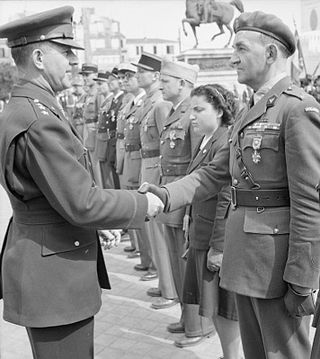
Mieczysław Zygfryd Słowikowski, also known as "Rygor-Słowikowski," was a Polish Army officer whose intelligence work in North Africa facilitated Allied preparations for the 1942 Operation Torch landings.

Union of Polish Patriots was a political body created by Polish communists in the Soviet Union in 1943. The ZPP, unofficially controlled and directed by Joseph Stalin, became one of the founding structures of the Soviet-controlled communist government that after World War II took power in Poland.
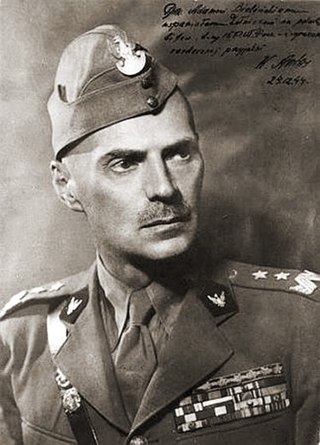
Anders' Army was the informal yet common name of the Polish Armed Forces in the East in the 1941–42 period, in recognition of its commander Władysław Anders. The army was created in the Soviet Union but, in March 1942, based on an understanding between the British, Polish, and Soviets, it was evacuated from the Soviet Union and made its way through Iran to Palestine. There it passed under British command and provided the bulk of the units and troops of the Polish II Corps, which fought in the Italian Campaign. Anders' Army is notable for having been primarily composed of liberated POWs and for Wojtek, a bear who had honorary membership.
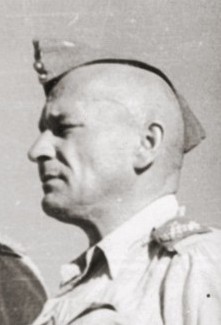
Bronisław Stanisław Rakowski was a Polish general. He fought in the Polish legions during World War I. As a Colonel defending Lviv he refused entry to the Soviet Army during the Soviet invasion of Poland, instead suggesting the Soviets advance on German positions, and after the city capitulated, was later imprisoned by the Soviet NKVD. During World War II, he fought in the Anders Army and Polish Armed Forces in the West.

Frances Garnet Wolseley, 2nd Viscountess Wolseley was an English gardening author and instructor. Her Glynde College for Lady Gardeners in East Sussex had the patronage of famous gardening names such as Gertrude Jekyll, Ellen Willmott, and William Robinson.
Tadeusz Piotrowski or Thaddeus Piotrowski is a Polish-American sociologist and author. He is a professor of sociology in the Social Science Division of the University of New Hampshire at Manchester in Manchester, New Hampshire.
Yitzhak Wittenberg was a Jewish resistance fighter in Vilnius during World War II. He was a member of the Communist Party. He was the commander of the Fareynikte Partizaner Organizatsye (FPO), a resistance group in the Vilna Ghetto which was preparing an uprising should the final moments of the ghetto come. When the Germans learned about the existence of a Communist, Wittenberg, in the ghetto, they made a request to the head of the Jewish council, Jacob Gens, that Wittenberg should be surrendered to them. Gens betrayed Wittenberg to the police who arrested him, but he was freed by young FPO fighters. Subsequently, Gens insisted that Wittenberg surrender. Feeling he did not have the support of the ghetto for an uprising and fearing a massacre, he surrendered.
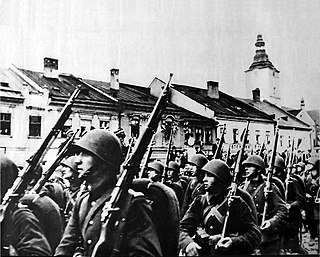
The Battles of Parczew, Jabłoń and Milanów constituted one of the major battles between the Polish Army and the Red Army during the Soviet invasion of Poland. They took place on September 29–30 of 1939 at the beginning of the Second World War. They resulted in a Polish victory, as the Polish units successfully broke through the Soviet forces near the town of Parczew and progressed towards the Świętokrzyskie Mountains.

Resistance: The Underground War Against Hitler, 1939-1945 is a 2022 history book by Halik Kochanski. It is about the European resistance movements during World War II. It won the 2023 Wolfson History Prize.
This is a select bibliography of English language books and journal articles about the history of Poland during World War II. A brief selection of English translations of primary sources is included. Book entries have references to journal articles and reviews about them when helpful. Additional bibliographies can be found in many of the book-length works listed below; see Further Reading for several book and chapter-length bibliographies. The External Links section contains entries for publicly available select bibliographies from universities. This bibliography specifically excludes non-history related works and self-published books.
The Eagle Unbowed: Poland and the Poles in the Second World War is a 2012 book by Halik Kochanski about the Polish contribution to World War II and published by Harvard University Press.
References
- 1 2 3 "Catch Up With Polish Military History Lectures & IPMH Digital Library 2021-2022 - The IPMH lecture: Dr Halik Kochanski discusses Poland: A Battlefield, 1812-1945". Institute of Polish Military History. Archived from the original on 3 January 2023.
- 1 2 3 Grondelski, John M. (1 December 2013). "A Talk with Halik Kochański". The Polish Review. 58 (4): 91–94. doi:10.5406/polishreview.58.4.0091. ISSN 0032-2970.
- ↑ "Kochanski wins £50k Wolfson History Prize". Books+Publishing. 14 November 2023. Archived from the original on 20 November 2023. Retrieved 20 November 2023.